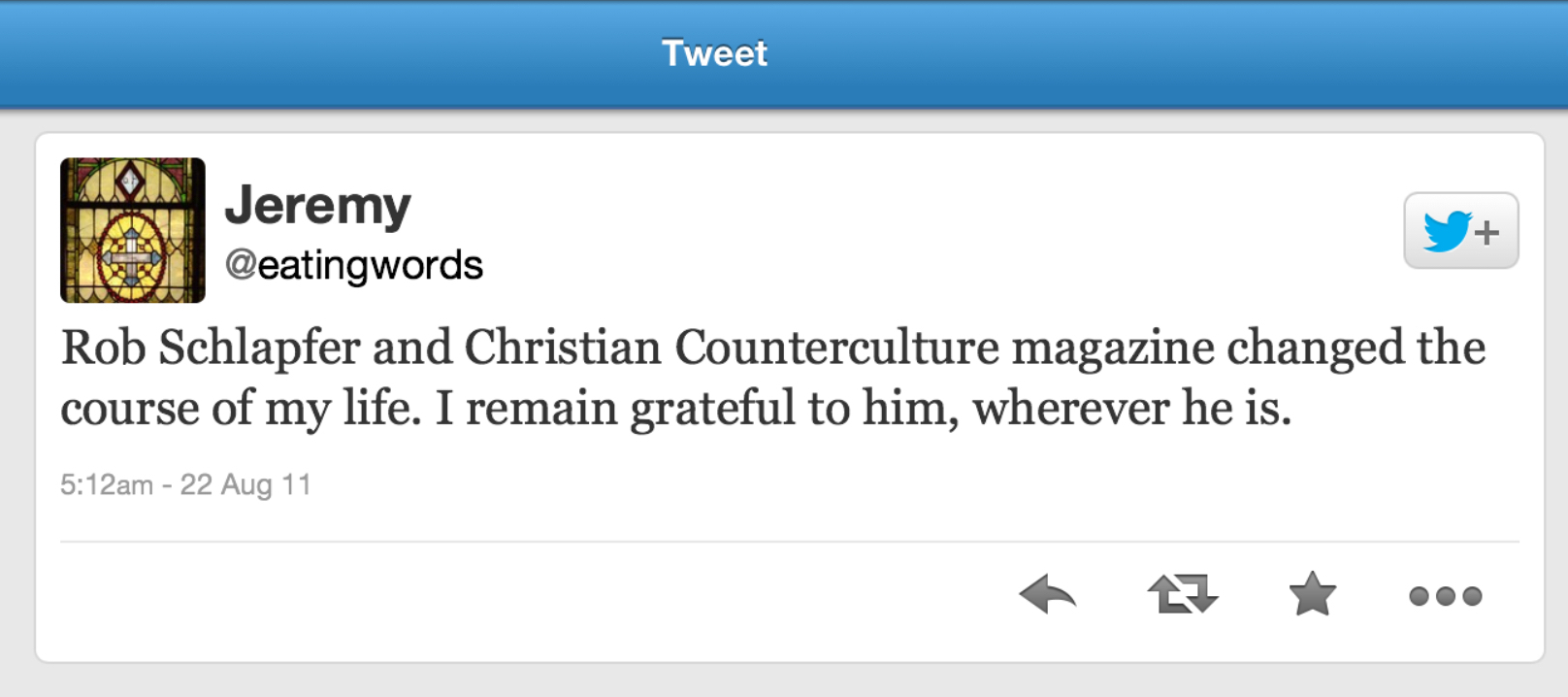I have mentioned previously that I was raised in a fundamentalist Christian church — and I remained there until my brain completed development in my mid-twenties. It was a church that strongly emphasized separation from the “world” and enforced that separation by creating, as much as possible, a bubble around the members. We were constantly warned about the dangers of too much contact with people outside our church.
And they were right! What finally broke the spell for me was encountering Christians who didn’t belong to my church. Christians who seemed every bit as devout and sincere as me, just without the cultishness. I learned about these other Christians first through Contemporary Christian Music, which was of course forbidden by my church. As embarrassing as that music is now in retrospect, it was my first glimpse into the wider Christian world.
The second major influence was Christian CounterCulture, an email newsletter and website by Rob Schlapfer. If Contemporary Christian Music opened my eyes to the existence of other sincere Christians, Christian CounterCulture helped me discover a new intellectual world.
How to describe Christian CounterCulture? I’ll give you my impression and experience of it with the caveat that 1. it’s been a while and my memory may be fuzzy and 2. I have a general knowledge of the history of evangelicalism over the past few decades but no expertise, not having ever been an evangelical (I went from fundamentalist to mainline).
My impression was that Christian CounterCulture, which ran from 1999 to 2005, was an early voice of progressive evangelicalism/emerging church movement in the early 21st century. It was highly critical of the vapid evangelicalism of its time and advocated for something more intelligent, less slavishly “relevant” (which was evangelicalese for “pop culture but less sexy and fewer cuss words”).
This was a perfect fit for me: it was critical of pop culture (which was a song in a genre I was very familiar with) while also being smart and sincere and substantive. It introduced me to Over the Rhine, which is still my favorite band. It introduced me to Wendell Berry, who holds a place in my personal pantheon. It introduced me to John Piper, who in turn led me to Reformed Christianity which led me to White Horse Inn which introduced me to Missouri Synod Lutheranism, which is where we went after leaving fundamentalism. And many other things. So, yeah, a major impact.
I cannot recall how I discovered Christian CounterCulture. I do know that I had a boring job and an internet connection and I stumbled onto a lot in those days when the internet was young. It would have taken much longer for my world to open up if it had not been for the internet.
In preparation for writing this, I googled Christian CounterCulture and Rob Schlapfer and came across his portfolio site. Scrolling through the screenshots, I was shocked to find that he had, at some point, included a 2011 tweet from me on the page.

That absolutely made my day.